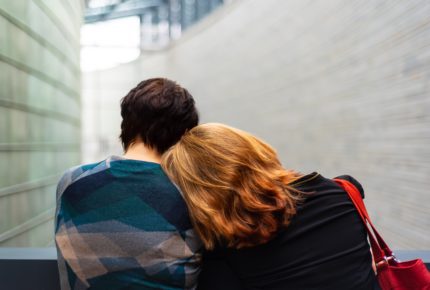

GBH stands for ‘grievous bodily harm.’ This is old legal terminology that the courts have determined means ‘really serious harm’. The offence is set out at Section 18 and Section 20 of the Offences Against the Person Act 1861 (OAPA), which is a really old piece of legislation that explains the archaic terminology. This article aims to explain the law around GBH. We look at the legal elements of this offence, and the sentence you could face if convicted.
What is the offence of GBH?
Section 18 of the OAPA sets out the offence of ‘shooting or attempting to shoot, or wounding with intent to do grievous bodily harm.’
Meanwhile, Section 20 sets out the offence of inflicting bodily injury, with or without a weapon. The legislation states that you commit GBH when you ‘unlawfully and maliciously wound or inflict any grievous bodily harm upon any other person, either with or without any weapon or instrument.’
The CPS, and later in the case juries, often have to decide whether an offence is sufficiently serious to be categorised as GBH or whether the proper charge is the less serious offence of Actual Bodily Harm (ABH).
The courts have determined that GBH does not need to cause permanent or dangerous harm and that an assault does not need to have been committed for an incident to comprise GBH.
Ultimately, whether an offence meets the criteria of GBH is for the jury to assess, applying contemporary social standards.
The victim’s age, health and other personal factors are relevant when considering whether the appropriate charge is ABH or GBH. The same incident could have a much more serious impact on an elderly or vulnerable person, and this is relevant for the jury to take into account when reaching their verdict.
Any life changing incidents should be charged as GBH, while mild hospital treatment suggests ABH. Significant or sustained hospital treatment on the other hand suggests GBH.
For the purposes of GBH, wounding is defined as a break in the skin. It can include a small cut or laceration. That said, the charge of wounding with intent should generally only be used in cases where the wounding was serious. This includes wounds caused by a knife or other weapon even where the injury was minor, in order to reflect the seriousness of being wounded by an offensive weapon.
What is the difference between GBH Sections 18 & 20?
The key difference between the offences under Section 18 and Section 20 OAPA is the mindset of the alleged perpetrator. This relates to the mental intention of the defendant at the time that the offence was committed. For the Section 18 offence to have been committed, the defendant must be found to have intended to wound or to commit really serious harm. By contrast, for the Section 20 offence, the court only has to find that he or she intended or foresaw some harm resulting from the incident.
Here is an example of the difference between the two offences:
- Following a domestic argument, a person goes to the kitchen drawer, removes a knife and stabs their partner. In all likelihood they have committed a Section 18 offence because at the time of the incident, they intended to wound them.
- If, instead, they tackle their partner to the floor, intending to restrain them and in doing so their partner hits their head causing bleeding from the skull, the defendant could be charged under Section 20. However, this would depend on the circumstances and especially the specific mental intention of the defendant at the time of their action.
- If they were responding to violence used by their partner, they may be able to rely upon the defence of self-defence. This could lead to them being convicted of a lesser offence, or even being acquitted altogether.
As this example illustrates, when deciding which is the appropriate charge, the jury has to try to decide upon what was in the defendant’s mind at the time of events. Because of this, it is really important to ensure that you have high quality legal representation because your solicitor and barrister will play an important role in helping the court understand your state of mind at the time of events. Ultimately, this is likely to have a highly significant impact upon whether you are convicted, and the heftiness of your sentence.
What happens if you are caught after committing GBH?
If you are caught at the scene of a GBH incident, the police are likely to caution and arrest you and to cordon off a crime scene so that forensic evidence can be taken. Police officers will also take statements from any witnesses who saw what happened. You will then be taken to the police station where you will be booked in by the custody sergeant. The custody sergeant will ask you if you wish to have anyone informed of your arrest. They will also highlight your right to legal representation. Your fingerprints and other biometric information will be taken.
You have the right to consult with your legal representative privately before you are interviewed. If you require medical treatment, a health care professional at the police station will assess you. If necessary, you may be transferred to hospital. You will then be interviewed in the presence of your legal representative.
The best strategic approach to the police interview depends on the circumstances, including the strength of the evidence against you, and whether you have a defence that you intend to rely upon. For example, if you say that you committed the assault in self-defence, it is usually a good idea to raise this at the first opportunity. This is because it would seem less credible if you raised the defence of self-defence at court, without having first mentioned it to the police.
After the interview, the police will make a charging decision. If you are charged, you will then either be remanded in custody, or released on bail. You will then have to appear before the Magistrates’ Court for your first appearance. The case may later be transferred to the Crown Court. Note that for Section 18 offences, the trial will always be heard in the Crown Court.
If the police do not yet have sufficient evidence to charge you, they could release you on bail, or release you ‘under investigation.’
What is the sentence for GBH in the UK?
The most serious sentence that you could face for GBH under Section 20 is 5 years’ custody. Where the GBH is racially or religiously aggravated, the maximum sentence is 7 years’ custody. For offences under Section 18, you could face life imprisonment.
The first step that the court will take when deciding your sentence is to look at your culpability. This is your role in the offence. Factors such as planning, premeditation, or if the offence was carried out in the context of gang activity, will increase culpability. Meanwhile, if you were forced or coerced into committing the offence, or if you committed the offence in self-defence, even if the violence used was excessive, this would reduce your culpability.
Next, the court will consider the harm that has been caused. Here, the injuries suffered by the victim will be relevant. Any permanent damage would increase the harm caused. Also, the impact upon the victim’s ability to carry out day to day activities, including work, will be taken into account.
The culpability and harm will provide the starting point for the sentence. For example, a high level of culpability and a high level of harm for the Section 20 offence gives a starting point of 4 years’ custody. From there, aggravating and mitigating factors relevant to the defendant will be taken into account. Aggravating factors would include previous convictions of a similar nature, if children were present when the offence was committed, and if the offence was committed whilst under the influence of alcohol. Mitigating factors include if the defendant has mental health issues, if the defendant has shown remorse, and if the offence was committed in response to a significant degree of provocation.
Do first time GBH offenders go to jail in the UK?
GBH is a very serious offence so even if you are a first-time offender you could still face jail time. This will depend on the context in which the offence occurred. If there are significant extenuating circumstances, you might escape jail time. Even if no such circumstances are present, if you are of previous good character and you have not committed any similar offences in the past this will reduce the length of your sentence.
A good criminal defence solicitor will assist you in preparing your plea in mitigation, which could significantly reduce the sentence you are given.
Where to get further help
If you have been charged with GBH, you are probably feeling stressed and anxious regarding the upcoming trial. Regardless of whether you intend to plead guilty or not guilty, experiencing the criminal justice system can be daunting. At Stuart Miller Solicitors, we understand this and will do our utmost to help you understand and navigate the criminal justice process. Contact us for a no obligation consultation today.
